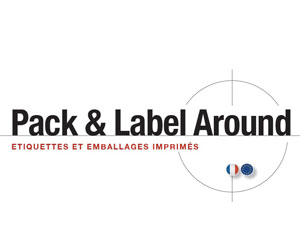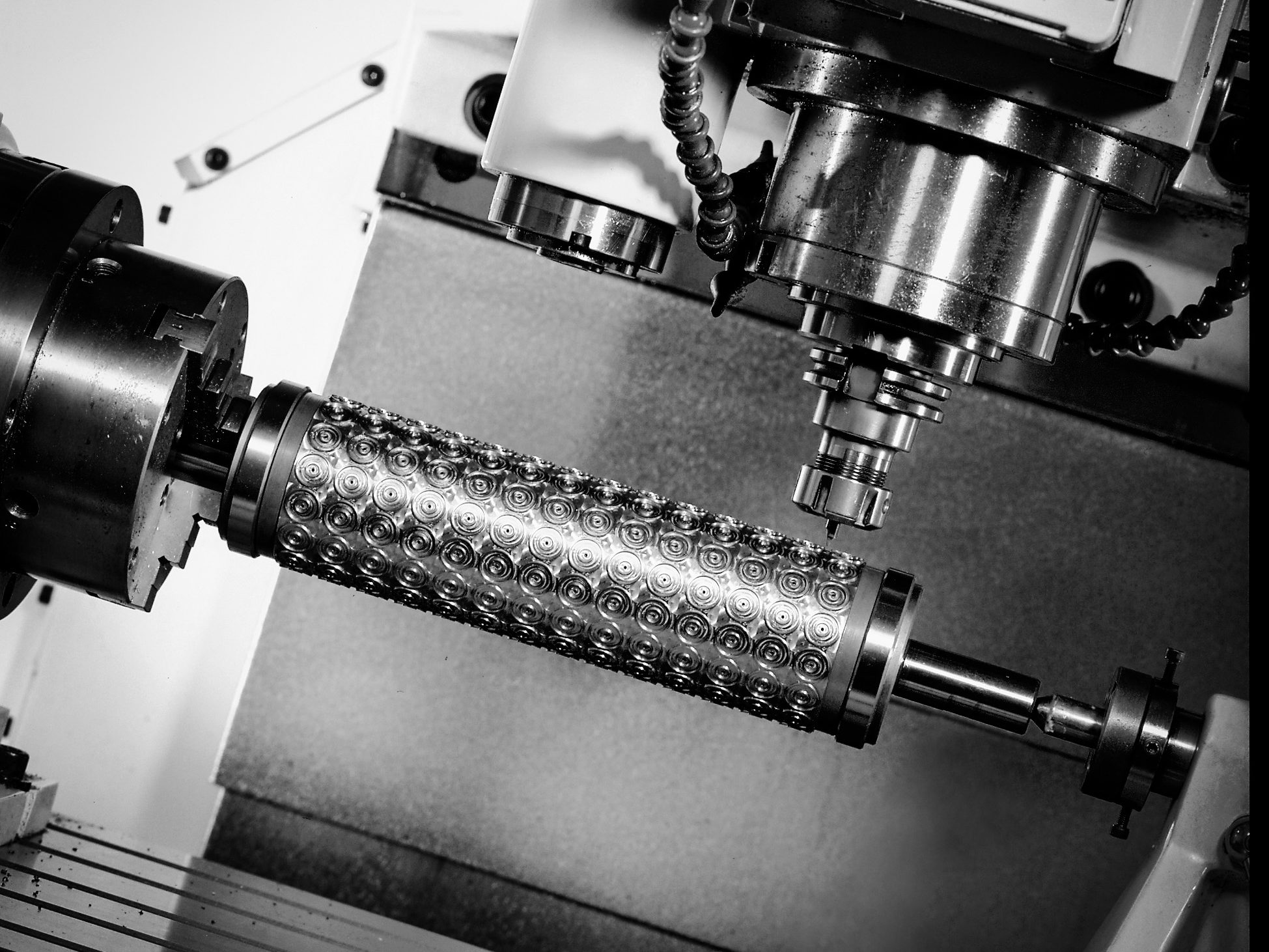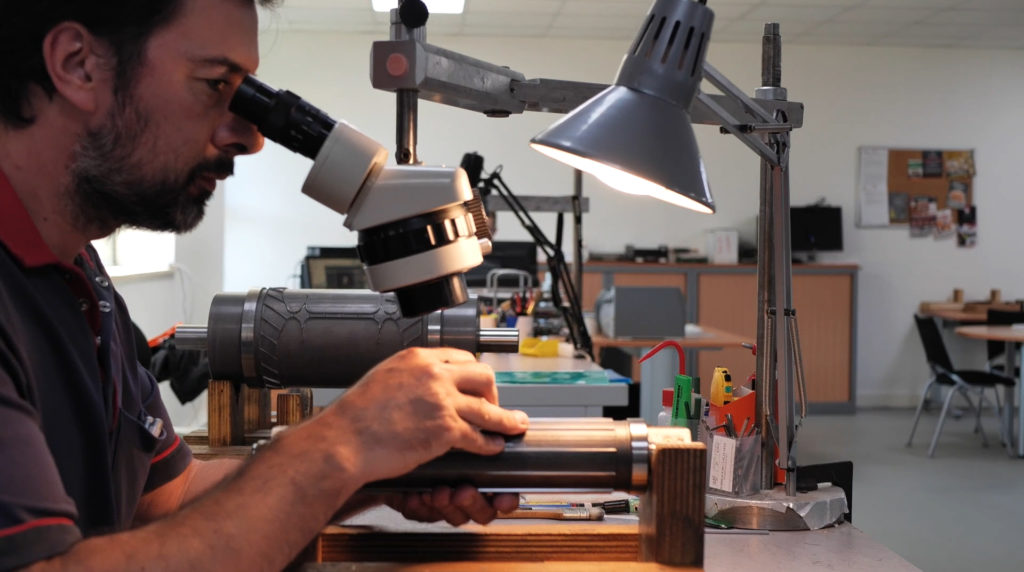
Extract from “Pack&Label Around” magazine No. 23 I April-May 2022
Few manufacturers knew about this company before Mathieu Ferbach turned it around. For a decade, well established in Chessy between Val d’Europe and Marne la Vallée, Rototechnix (RTX) has been flourishing.
The world of cutting cylinders is not limited to the three “German majors”, manufacturers of magnetic plates, namely Wink, K+B and Spilker. Rototechnix does not manufacture magnetic plates, but all the cylinders that can be used on a label press or for many industrial applications of transformation of adhesive or non-adhesive materials. Mathieu Ferbach best sums up the core business of this SME. “We specialize in all cylinders that require high dimensional accuracy and uncompromising sharpness. This young manager himself has theorized the three characteristics, the “three T” rule, which governs an excellent cut: the T of temperature, the T of cutting edge and the T of material tension. RTX takes care of the cutting edge of the cutting cylinder, and it is up to the client to take care of the other two “T’s”.
The cylinders manufactured, machined in Chessy in Seine-et-Marne, integrate directly in the mass the silhouette to be cut, the gilding or embossing patterns. The company also offers magnetic plate cylinders and has established itself in Europe as the best manufacturer of counterpart cylinders. Behind the now well-known name GapControl, Rototechnix has built up a know-how in the design of the cylinder and the pressure gauges (ManoControl). The GapControl simply provides the lowest adjustment step on the market, with perfect stability over time (the system does not heat up), which has a direct influence on the precision and efficiency of the cut.

Nine to ten processing operations
By the way, how is a cutting cylinder made? “It all starts with the arrival of the steel bars, which we select each time according to the rolls to be made,” explains the manager. There is no shortage of steel on the horizon, because the steel comes mainly from Western Europe, especially Austria, and is of very high quality. The first transformation of the cylinder consists in sawing the bar to obtain the right widths. This is followed by nine to ten successive operations to shape the part. “As the cylinder is processed, its dimensional accuracy tends towards the micron. With our various machining centers, we are indeed reaching the micron,” enthuses Mathieu Ferbach.
Our little cylinder now goes through a lathe to roughen its diameter and obtain its bearing strips and spindles.
This is not enough. We have to be more precise. So the part goes to rough engraving on a numerically controlled milling machine. The first step of material removal is completed. Before further processing, the cylinders must be hardened (heat treated) to ensure the required level of hardness. Only this hardness will allow the machining of very fine details, such as threads, which must remain sharp for as long as possible. Moreover, this hardening must be absolutely homogeneous in the core as well as on the surface. This is a sensitive step that is entrusted to a specialized industrialist. Back at Chessy, the cylinder undergoes the crucial grinding stage. This operation aims to obtain the exact concentricity required. This determines the quality of the cylinder in the following stages. It is at this stage that the type of cut required is precisely defined, for example, a mid-cut on a label without damaging the thin silicon layer on the liner, which would disturb the easy peeling of the label, even in an automated way and at high speed at the final customer’s. After the grinding step, the cylinder is finally ready to be machined. “This operation generally takes 5 to 6 hours, sometimes much longer for complex geometries,” says Mathieu Ferbach.
Nothing better than the human eye
The latest numerically controlled machining center that entered the workshop gives dimensional accuracies of less than a micron, all on a 1200 mm width! Such precision is generally sufficient for the world of adhesive labels, but Rototechnix also designs cylinders for the automotive and food industries. It designs cylinders for cutting coffee capsules for which such precision is required.
Here, the reader will think that the manufacturing is completed, the cylinder ready to be delivered? No way! Specialized operators, with the help of electronic binoculars and a stylus, will ensure the final quality of the cutting edge. The parallel can be drawn here with the manufacturers of doctor blades who check the blade with their finger and eye.
Rototechnix systematically checks all cylinders before shipping. Test benches allow the customer’s cylinder to be tested with its material. The operator can therefore control the cutting as in real conditions. The report is then printed with the technical data sheet and packed with the cylinder in a well-padded wooden box ready for delivery.

Increasingly high technology
The German manufacturers of magnetic die-cutting plates all benefit from privileged relationships with label manufacturers. This is also the case for Rototechnix, which works well with Alsace Techniques Etiquetage (ATE). The two companies already work regularly for the same markets, particularly labels and the automotive industry. Links have also been established with Sysco (Dorey), which offers automatic industrial processing lines for plastic cards, RFID supports, etc. Rototechnix supplies it with specialized cutting cylinders. “These technological partnerships have become essential to continue to progress”, confides Mathieu Ferbach. These cylinders are becoming more and more complex, they can integrate perforations when they are designed for the pneumatic ejection of parts, others integrate springs or different mechanical elements. The design of the cutting patterns is also becoming more complex: a cylinder ensures the cutting of the weeding and then the cutting of the labels in the middle and why not, additional cuts inside the labels themselves, to house an RFID chip or any other element that adds value to the label. Rototechnix should celebrate its 40th anniversary next year. It manufactures an average of ten cylinders per day, i.e. more than 3,000 units per year, of all widths, all diameters, steel or brass cylinders (hot stamping), cylinders with mechanisms, others with non-stick coating (cylinder “the Green” for food applications). It owes its know-how to its employees, technicians, head of the design office, and machinists who all followed the company when it moved in 2011 from Aubervilliers to Chessy. Helped by a sustained activity, Mathieu Ferbach recruits and invests. Every year he trains apprentices, who often end up with permanent contracts. The investment is of course aimed at acquiring new machines, but the manufacturing process can still be improved, some steps could be simplified but…. shhh, it’s a secret.